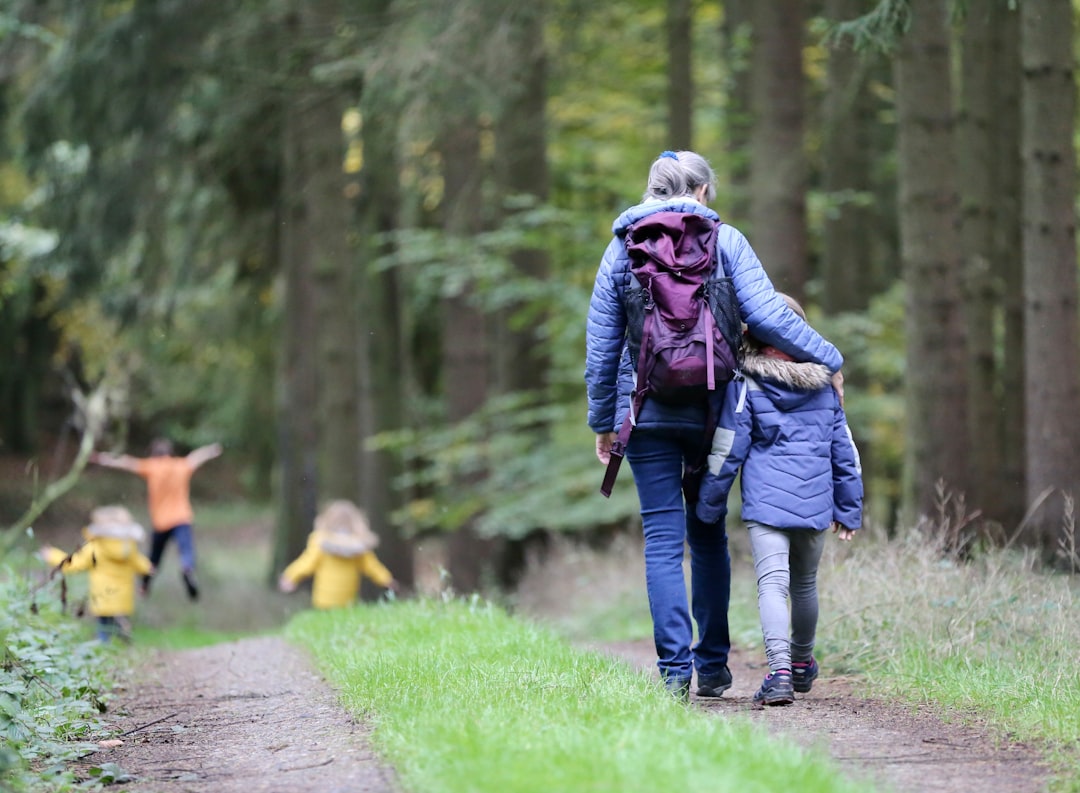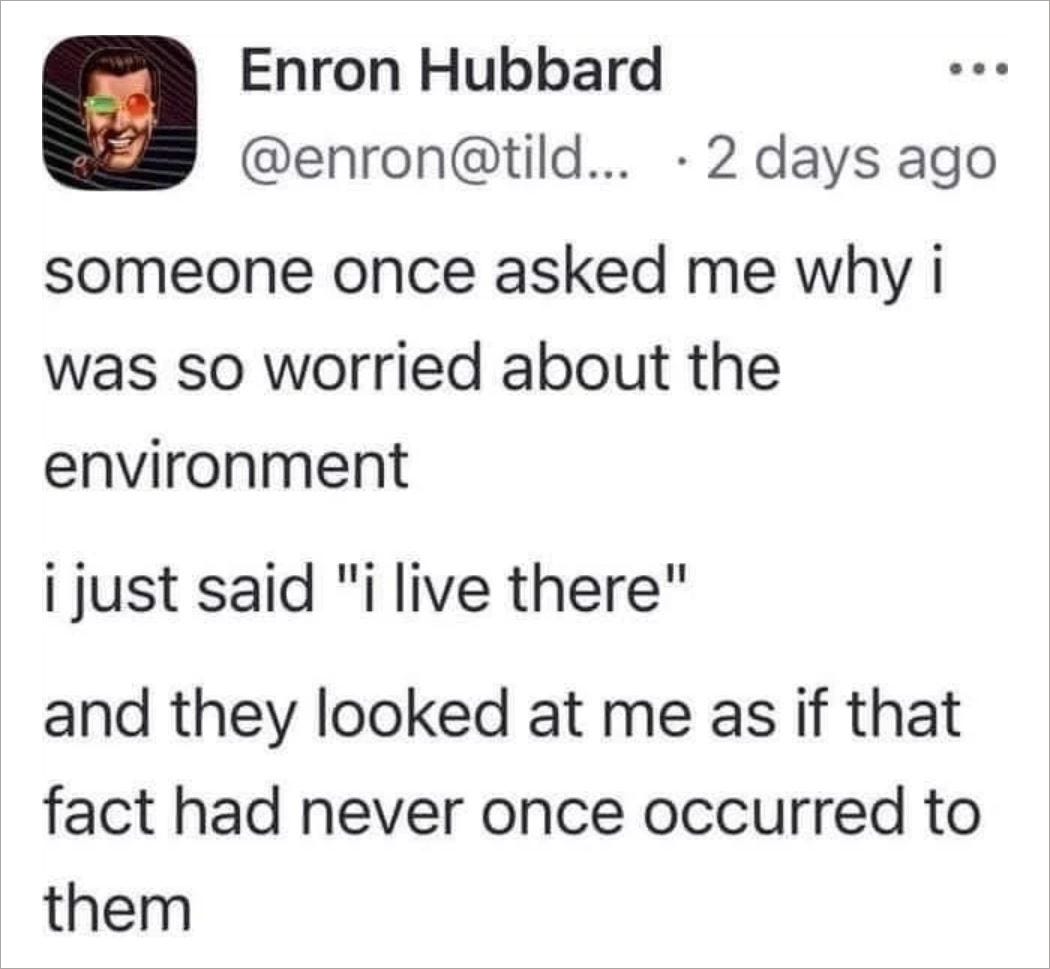Habitat of Humanity: Because We Live Here.
Communicating what matters about the climate challenge.
How do we find the right words to connect with people? We first figure out what we are really trying to communicate, not just the facts, but why something is important. Then we figure out what words will best convey that message. In the case of our climate, what is important is the fact of our biological dependence, that we are losing our only viable human habitat.

Thank you for reading Reframing America! This is a reader-supported publication. To receive new posts by email please consider becoming a subscriber. All content is free, but some people choose to become paying subscribers to support this mission!
Finding the Language
The right words and phrases impact people’s thinking and influence the public debate. But how do you find the words that work? We can take steps to help us figure out what those words should be.
Before we can start developing messaging, we have to be absolutely clear about what it is we are trying to communicate. We should ask ourselves some big picture questions. Even though they may seem obvious, it’s useful to verbalize these answers before moving on.
What is the issue?
What are we trying to achieve? What is our goal?
We need to take action to stop global warming, and by “we” we mean everybody.
What do we want people to do?
What course of action are we proposing?
All of humanity needs to make converting from fossil fuels to clean renewable electricity its top priority.
Why is this so important?
Why should this matter to people? What is it that makes taking action to deal with this situation morally urgent?
Human beings are biologically dependent on this climate. We need to preserve the delicate conditions necessary for human survival. We are in a very precarious situation.
THAT is the perspective from which you want people to see and judge this situation, in other words, how you need to frame this issue. Your mission is to find the language and imagery to effectively communicate that perspective through your messaging.
Because We Live Here
Creating the political will necessary to fight the climate crisis requires overcoming psychological barriers. One of those barriers is that many people are emotionally detached from the problem or in denial. We talk about the climate. We talk about parts per million and goals by years. Our brains would prefer that we keep these things far away in both space and time. We talk about “saving the planet,” but the planet doesn’t need us to save it. The planet will be just fine without us.
What’s missing?
Our current language doesn’t really say enough about where we humans fit in. If we want our messaging to convey a sense of moral urgency, it has to be about us. We need to say something about the relationship between human beings and the natural world.
People’s perspective on that relationship depends on whether you are looking at it in the context of a Republican worldview or a Democratic worldview:
The “dominion” frame:
God gave man dominion over the natural world, so that we might take natural resources and be productive with them.
This relationship is at the core of all conservative messaging on the environment and their belief that the right to profit from the use of private property is unalienable: it outranks even the decisions of majority rule.
The “common home” frame:
The earth/natural world is the common home of all living creatures. We have a moral obligation to each other to protect the home we all live in.
What kind of words are we looking for?
As practitioners of framing, our task is to find the words that will get people to see the situation from the right perspective. In this case, we need a word or words that will evoke the idea of the earth as the common home of humanity and remind us of our biological dependence on our natural environment.
Protecting Our Human Habitat
The word “habitat” means both “home” in terms of physical housing and the natural environment necessary for survival.
Framing Note:
Words have emotional baggage. Words activate in people’s brains all the things that are associated with those words. When we use words in a certain situation, those words create analogies that transfer those attributes to the situation at hand.
What do our brains associate with the word “habitat”? The words “spotted owl” no doubt come to mind. We already understand the basic concept of preserving the habitats of endangered species.
The term “human habitat” creates an analogy: climate is to humans as habitat is to animals. In other words, we’re the endangered species and this climate is our habitat. People understand that you can’t eliminate the natural habitat of an endangered species, because that species won’t survive without it. It is this dependent relationship that is not being communicated with most of our current messaging.
Habitats can be “natural” and “critical.” They can be “threatened” and “endangered.” They need to be “saved,” “protected” and “preserved.” There is “habitat loss” and “habitat conservation.” How does all that play out?
If we are in danger of losing our only viable habitat, then we are endangered.
If our human habitat is endangered, we need to protect it.
If our human habitat is being threatened, we have to eliminate the threats.
If there is habitat loss, there must be conservation and preservation.
We even have laws that protect the habitats of endangered species, some of which actually supersede people’s property rights. Getting people to think about the climate as our habitat helps them visualize, and make the moral case for, prioritizing the protection of critical human habitat over the unlimited right to make profits.
The word “habitat” also means actual “housing.” It calls to mind Jimmy Carter’s “Habitat for Humanity” in which volunteers help build houses for people in need. In this case, the association of the word habitat with actual houses is helpful to us. The “house” meaning makes the concept of “habitat loss” more concrete.
People perceive the loss of a home as an immediate and emotional crisis. Even in the news today, we read about people in California’s central valley who are losing homes, farms, businesses and even entire towns. They had been built on an empty lake bed that has recently been refilled thanks to fourteen atmospheric rivers.
The term habitat can help us bridge the gap between the larger abstract awareness of areas becoming uninhabitable, and the idea that real people are literally losing their homes to disasters: wildfires, flooding, tornados, hurricanes, sea-level rise, etc. It also connects the dots between extreme weather and climate migration.
The Climate Narrative
The human habitat analogy is a critical piece of the over-arching narrative on the climate crisis. Let’s look at the whole narrative to see where it fits in.
First, here is our meta-narrative: not the words we need to use, but the underlying meaning we intend to convey:
We must save our only viable human habitat. The human race must come together to meet this challenge. This is a moral obligation we have to each other. We can do this. We have to act now. This can only be done by government action. What we (the people) have to do is create the political will. All obstacles must be overcome. The right to preserve the delicate conditions necessary for human survival supersedes all other rights.
The Details
We must save our only viable human habitat.
Human beings are biologically dependent on this climate. Our only viable human habitat is in danger. We must preserve the delicate conditions necessary for human survival. If we lose our habitat, we become an endangered species.
The human race must come together to meet the climate challenge.
All human beings have to come together, set aside our differences and rise to meet this challenge. We have to work across borders. There is no alternative. You might recognize this as the “planetary threat” movie scenario (alien invasions, meteorites).
See my previous post: The Climate Challenge is Now: How Words Work. The “challenge” frame conveys behavioral expectations to “face,” “step up,” and “rise to meet.”
This is a moral obligation we have to each other.
The earth is our common home. This is an obligation we have to each other, a responsibility that we share as people who live together on this planet. We should promote the idea of “human beings” as common identity.
We can do this. (agency)
There is hope. This is something we can do. We have the technology. We have the resources. What we need is the political will.
We have to act now. (urgency)
We must take action immediately to get our climate back in balance. There is no more time for delay.
This can only be done by government action.
Big problems require big solutions. Government is actually the tool we use, as a society, to do big things together that we can’t do on our own.
Only governments can do what is necessary: coordinate with other governments, generate sufficient resources, create rapid increase in scale, remove obstacles, and ensure universal adoption (make sure everyone is on board).
I will explain this more in a future post!
What we (the people) have to do is create the political will.
If there isn’t enough political will, we must create it. The way we develop political will is to only elect people who will make this their top priority. Until then, we must place relentless pressure on the elected officials we have to make this their top priority.
It’s not about the money.
Do not validate opposition frames. We can say that this will create jobs and generally be good for us economically (and we’ll live a cleaner and better life) but we have to be absolutely clear that cost does not matter next to our survival. If this cost us every penny we had, it would still be worth it.
All obstacles must be overcome.
Some people are wielding their economic and/or political power to stop government from taking necessary action. We need to publicly acknowledge those costs and sacrifices and do whatever it takes to remove these roadblocks.
This is our most important right.
As the human species, our right to preserve the delicate conditions necessary for human survival supersedes all other rights.
Building the Narrative
There are a lot of aspects to the climate crisis debate. We can build a coherent, consistent and, most importantly, a moral narrative by weaving all of those aspects into the larger framework of this over-arching narrative.
I recommend using the terms “climate challenge” and “human habitat” as much as possible. The phrases might seem awkward at first, but the more you use them, the more it just makes sense. We can keep searching for better words, but for now, these phrases could be very useful. They evoke the frames that get people to see this situation the way we need them to see it: as an epic challenge we need to face, and a question of protecting our only viable habitat.
Thanks, as always, for reading and subscribing! I hope you are able to use this in your work and your activism!
In solidarity,
Antonia
Thank you for reading Reframing America! This is a reader-supported publication. To receive new posts by email please consider becoming a subscriber. All content is free, but some people choose to become paying subscribers to support this important mission!
Note:
Pope Francis expressed the concept of the earth as our common home beautifully in his encyclical letter, Laudato Si’: On Care For Our Common Home, which I highly recommend reading. It is both a beautiful moral argument in favor of environmental stewardship and one heck of an extended metaphor.





"climate challenge". I really really like that. Gonna adopt it!